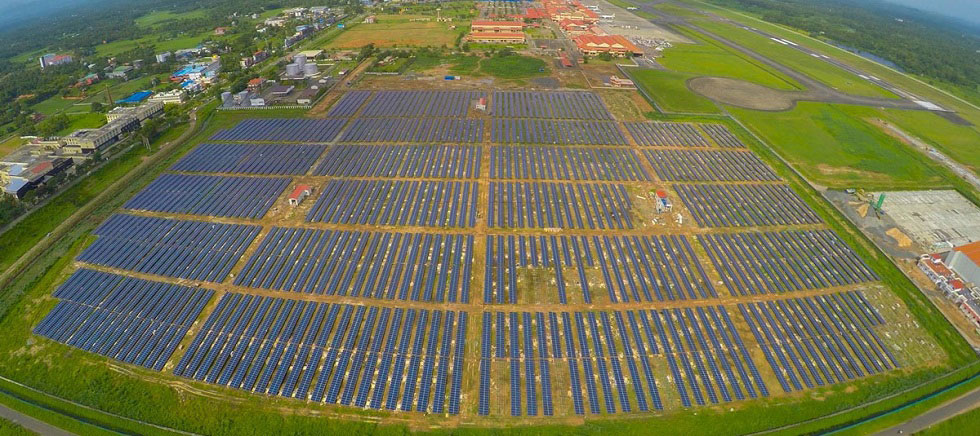Cochin International Airport in south India is the world’s first airport to run entirely on solar power. Starting this week, 46,150 solar panels will power all of the airport’s facilities.
[Nidhi Prakash/Fusion]
According to a press release, the solar power station is expected to save 300,000 tons worth of carbon emissions over the next 25 years. That’s the equivalent of planting three million trees or not driving 750 million miles.
[Ariha Setalvad/TheVerge]
Cochin International had already begun the transition to renewable energy when it installed a smaller solar power array on its arrivals terminal roof in March 2013, but the move to total solar power is still considered a significant step, as the airport has still relied partly on non-renewable power in the intervening years. The new system is designed to work with the smaller array from 2013 to fully meet the facility’s day-to-day energy needs.
[Alissa Greenberg/Time]
The announcement is a considerable PR coup for a country whose rapidly growing energy use will be one of the thorniest topics at the World Climate Change conference in Paris in December. India has relied heavily on coal to fuel its growth so far, making it one of the world’s biggest sources of emissions of carbon dioxide and other greenhouse gases. Developed countries led by the U.S. and E.U. are hoping the summit will produce the first binding commitments on cutting emissions by emerging countries such as India and China.
[Alissa Greenberg/Fortune]
Above image: Cochin International Airport Limited (CIAL) via Facebook.
Credit: Cochin International Airport Limited (CIAL)















Comments